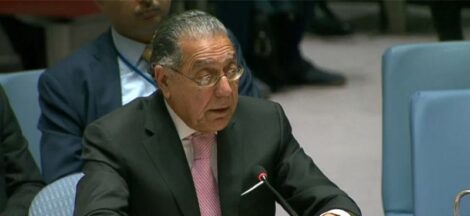A court in Bengaluru has ordered the filing of a First Information Report (FIR) against Finance Minister Nirmala Sitharaman, following allegations of extorting money through electoral bonds. The decision came after a petition was filed accusing the minister of misusing her position to extort funds from various entities. The court’s directive marks a significant development in the ongoing debate over the use of electoral bonds in India’s political funding system.
The court, while hearing the petition, noted that the accusations against the finance minister were serious enough to warrant further investigation. It directed the police to register an FIR and conduct a thorough inquiry into the claims. The petition alleges that Sitharaman was involved in extortion activities related to the sale of electoral bonds, a controversial financial instrument used to fund political parties, without the need to disclose donor identities.
Electoral bonds, introduced by the government in 2018, allow anonymous donations to political parties, which has led to widespread criticism. The scheme, which was intended to promote transparency, has been accused of fostering greater secrecy and corruption within the Indian political system. Several opposition parties and activists have called for the system to be overhauled or abolished entirely, citing concerns over its lack of transparency and potential for misuse.
The petition filed in the Bengaluru court accused Sitharaman of orchestrating a scheme where funds were allegedly funneled through electoral bonds to certain political entities in exchange for favors or preferential treatment. The complainant claimed that these activities amounted to extortion, with corporations and individuals being coerced into making donations through the bond system.
The finance minister has not publicly responded to the court’s directive, but sources close to the government have dismissed the allegations as politically motivated. They argue that the introduction of electoral bonds was intended to streamline political donations and eliminate the influence of black money in elections. However, critics maintain that the system has had the opposite effect, making it easier for undisclosed donors to wield influence over political parties and the policies they advocate.
Since their introduction, electoral bonds have become a contentious issue in Indian politics. Proponents argue that they provide a legal and transparent mechanism for donations, while critics argue that the system has deepened the opacity surrounding political funding. The anonymity afforded by the bonds means that neither the Election Commission nor the public is aware of who is funding which party, leading to allegations that it allows for untraceable money to influence the country’s political process.
In 2020, the Supreme Court of India had rejected a plea to stay the sale of electoral bonds, despite ongoing concerns about their impact on transparency. The court ruled that the sale of bonds could continue, with the government arguing that they had put in place sufficient safeguards to prevent misuse. However, civil society groups and opposition leaders have continued to push for greater scrutiny of the system, with several legal challenges still pending.
The accusations against Sitharaman come at a time when the debate over electoral bonds has gained renewed attention. Critics argue that the lack of accountability in the system allows for the subversion of democracy, as wealthy donors can influence policy decisions without facing public scrutiny. They also claim that the bonds disproportionately benefit the ruling party, as most of the donations made through the scheme have gone to the Bharatiya Janata Party (BJP).
Political analysts have pointed out that while the electoral bond scheme was initially presented as a solution to the problem of opaque political funding, it has in fact created a new set of challenges. The lack of transparency has led to growing concerns about the concentration of financial power in the hands of a few influential individuals or corporations, who can potentially shape political outcomes by directing large sums of money to specific parties.
In response to these concerns, several advocacy groups have called for reforms to the electoral bond system. They suggest that all political donations should be made public, allowing voters to see where parties are receiving their financial backing. These groups have also advocated for the implementation of stricter limits on how much money can be donated by a single entity, in order to reduce the influence of wealthy individuals and corporations on the political process.
The Bengaluru court’s order to file an FIR against the finance minister has added fuel to the ongoing debate. Legal experts have indicated that the case could have significant implications for the future of electoral bonds, especially if the investigation uncovers evidence of wrongdoing. The court’s decision to direct an inquiry into the matter suggests that the judiciary is taking the allegations seriously, which could prompt further scrutiny of the electoral bond system in the coming months.




 Hezbollah chief killed in Israeli airstrike on Beirut
Hezbollah chief killed in Israeli airstrike on Beirut 